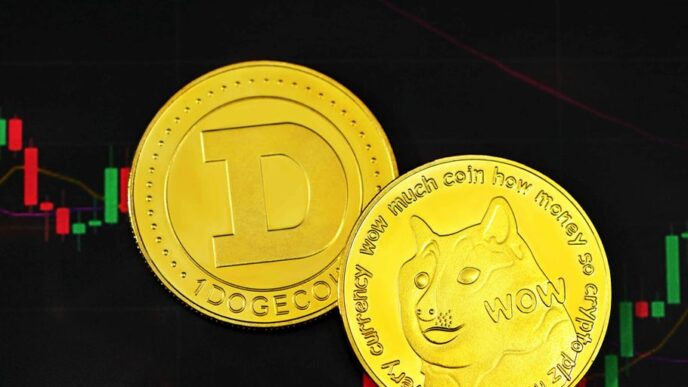The emergence of decentralized systems is growing at a rapid pace. Its presence is felt across the board, including how we imagine social media, finance, and many of our everyday interactions.
What is also emerging as a big, ubiquitous enabler is AI. According to numbers put out by Bloomberg in 2023, the generative AI market alone can grow to $1.3 trillion over the next 9-10 years from a size of just $40 billion in 2022.
When two powerful forces rise at the same time, many new innovations thrive in the space in which they converge. The decentralized AI space is one such zone of infinite possibilities.
The deAI Summit, organized by Pundi X on September 16th as one of the side events of the Token2049 Singapore, looked into these possibilities from the prisms of the convergence of AI and Blockchain and how the future of decentralized innovation and data sovereignty and ownership would be shaped by this convergence.
The deAI Summit: An Exclusive Platform for All AI & Blockchain Innovators to Gather
The summit had a host of blockchain industry innovators as its official partners, including Akash Network, Circle, WooX, 0G Labs, and many more. The innovators came together to explore, discuss, brainstorm, and exchange their views on a lot of issues, including the future of digital finance, the trajectory of decentralized ownership of data, possibilities of web3-based innovations, and much more. The discussants paid much attention to the nuances of AI-driven ecosystems built within the contours of decentralization norms and practices.
Multiple panels were constituted that looked into the cause-and-effect dynamics of the convergence, discussed specific intersecting spaces and their criticalities, and worked towards assessing the scope that the future held for the users.
Moving into specifics, the summit opening keynote was delivered on PundiX AIFX by co-founder and CEO Zac Cheah. Akash Network founder Greg Osuri spoke about the past, present, and future of computing. Circle’s APAC Developer Ecosystem Lead, Ian Chong, spoke about its developer platform and ecosystem grant. These speakers were followed by panel discussions that we will discuss in greater detail in the next segment.
The Panel Discussions: Understanding the Blockchain AI Era Better
The first panel featured Zac Cheah, CEO & Co-Founder of Pundi X; Zach Horn, Head of Marketing at Akash Network; Ian Chong, Developer Ecosystem Lead APAC at Circle; and Tiffany Lai, VP of Ecosystem at 0G Foundation, and moderated by Teng Yan from Chain of Thought. The panel looked into how blockchain could augment AI’s lead further by ensuring transparency, security, and scalability. With AI scoring high in all these aspects, it could become more useful and trustworthy for industries like Finance, Retail, etc.
The second panel went a step further by looking into the core component of AI: Data. AI feeds on data, more and more data, to be precise. But who is the owner of this data? Can AI snatch away data from its rightful owners? Who controls all this data that goes into making LLMs sharper, better, and more sensitive? The panel discussed the possibilities of deploying decentralized solutions to take back the control of data, giving it back to the individuals, allowing them to control, protect, and even monetize their own information.
Moderated by Rajeet Singh, Marketing and Strategy at AI Network, the discussion featured Benson Huo, Chief Raining Officer at Nubila and Andrew Goldsky, Global Marketing Director at Gaia.
The third panel looked into the scope that the future holds for us: AI-powered web3 startups, which could easily become the next billion-dollar opportunity. The panel was particularly useful in its insights, for it was attended by investors and VCs in the Web3 space on what they’re looking for in emerging projects, giving an idea of where to innovate more and how to link them to users.
The panel featured Abby Huang, Head of WOO Innovation Hub at WOOX; Nathanael Christian, CMO of Tokenomy; Rio Ogawa, Head of Marketing at Impossible Finance; and Raymond, cofounder of Mossfire Capital, as discussants.
Altogether, the deAI Summit delved deeper into an area that has limitless potential and space to explore that could go way deeper than imagined so far.












